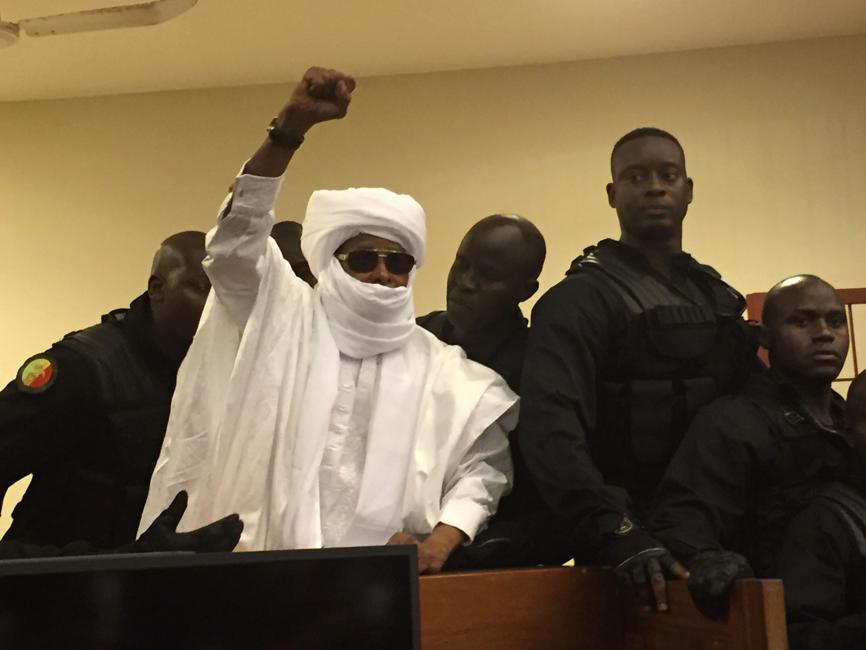
DAKAR, Senegal — Hissène Habré, the former president of Chad, was sentenced to life in prison after he was found guilty of crimes against humanity, torture, and sex crimes on Monday, more than 20 years after the start of a campaign to hold him accountable for the suffering and death of tens of thousands of people.
Habré, who ruled Chad from 1982-1990, when he was deposed by the current president, Idriss Déby, stood trial before a special court in Senegal created to handle the case. Prosecutors had sought the life sentence, which he is expected to serve in Senegal.
“The systematic torture at such a large scale was his way of governing,’’ said Gberdao Gustave Kam, the presiding judge, who read a summary of the verdict. “Hissène Habré showed no compassion toward the victims or any regret about the massacres and rapes that were committed.’’
Victims and relatives of victims screamed with joy after the verdict was announced. Habré, who had sat silently during the 90-minute hearing, raised his fists to supporters and shouted for several minutes until he was led away by armed guards.
The fact that the trial even took place was considered a victory for many of the victims of Habré’s government, who fought for more than two decades to bring him to justice.
The case meandered through the judiciary in Belgium and elsewhere for years before landing in Senegal, where Habré fled after being forced from power.
On Monday, a group of about 30 victims and widows of victims slowly walked into the courthouse together, many graying and using canes, a testament to the time it had taken for the case to come to trial.
“This is a testimony to the perseverance of a band of victims, activists and supporters who made this trial happen,’’ said Reed Brody, a Human Rights Watch lawyer from New York who was influential in pursuing the case. “This trial was the result of the sweat and determination of the survivors.’’
Several international human rights lawyers were in the gallery Monday to hear the verdict, including the prosecutor who indicted Augusto Pinochet, the dictator who ruled Chile from 1973-1990. Habré has been called the “African Pinochet.’’
During the trial, which started in July, prosecutors presented secret-police archives that recorded the names of 12,321 prisoners, interrogation reports and information about the deaths in detention of more than 1,200 people.
François Serres, Habré’s lawyer, has dismissed the records as “fakes.’’ Defense attorneys had said there was no evidence connecting Habré to crimes committed by others and had contended that the prosecution was political. Habré’s son and other relatives were in court Monday but declined to comment before the proceedings.
According to a Chadian truth commission, Habré’s government killed more than 40,000 people who were believed to be enemies of the state, or who had merely come under suspicion.
Habré was first indicted in 2000. The setting of the trial in Senegal offered a peculiarity: The courts of one country prosecuting the former leader of another in a human rights case.
The trial proceeded with the blessing of the African Union, even though the organization has long complained that Africans are often singled out before the International Criminal Court in The Hague.
The Hague court had no jurisdiction in this case because its authority is limited to events that took place after it was fully established in 2002. That restriction prompted the African Union to intervene.
Habré took power during a coup that was covertly aided by the United States, and he also received weapons and assistance from France, Israel and the United States to help keep Libya at bay.



